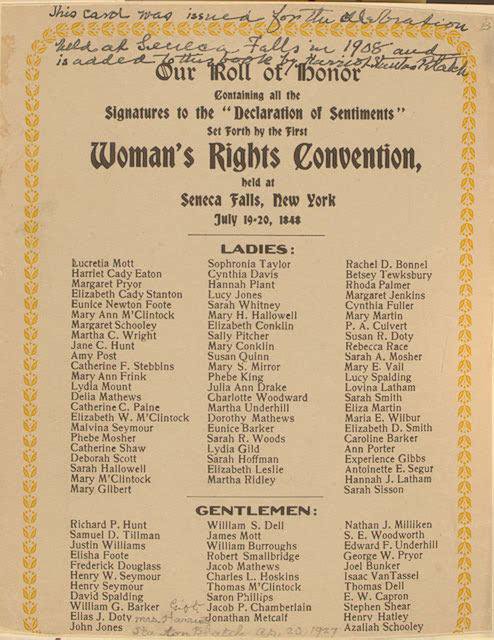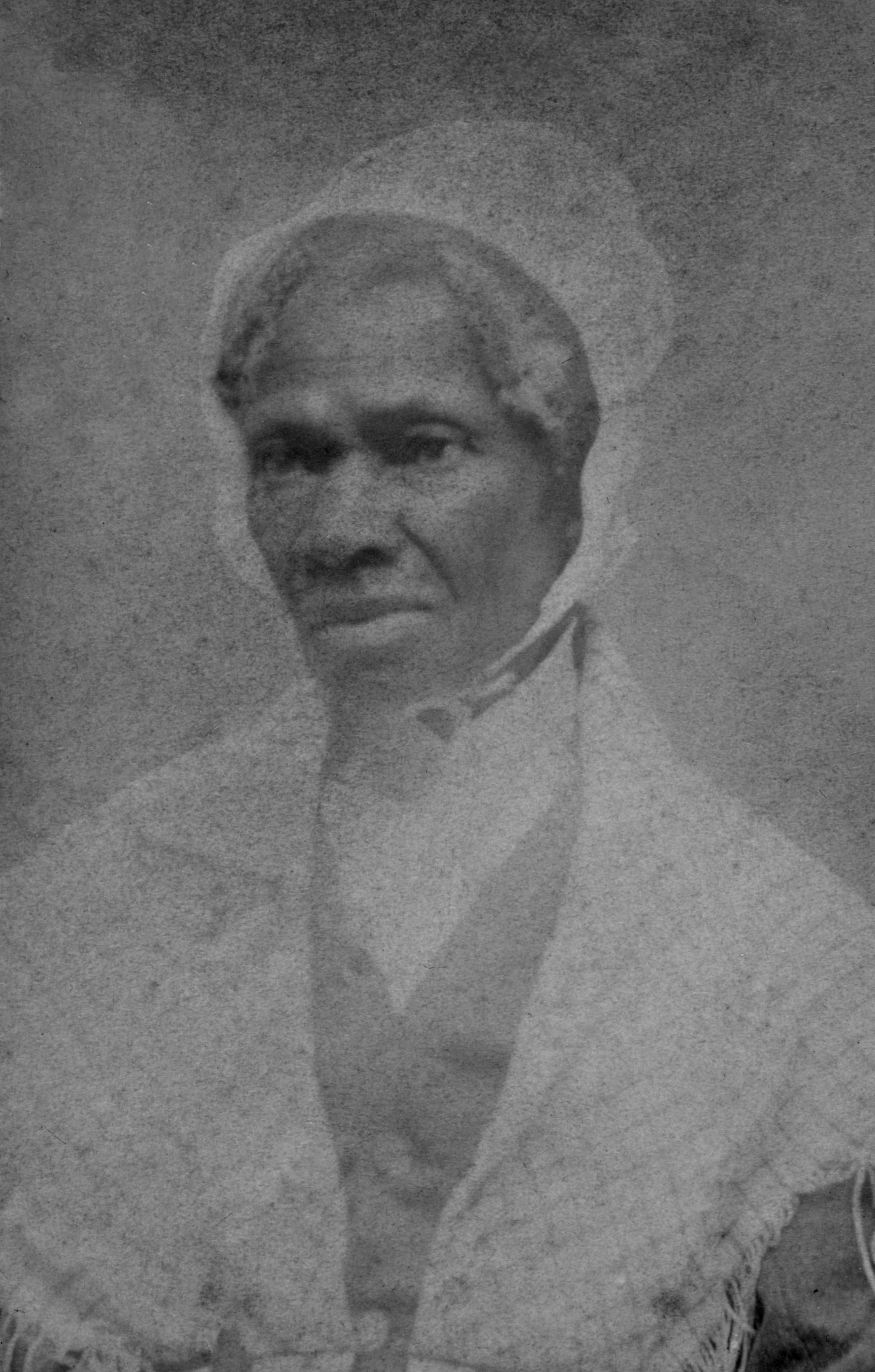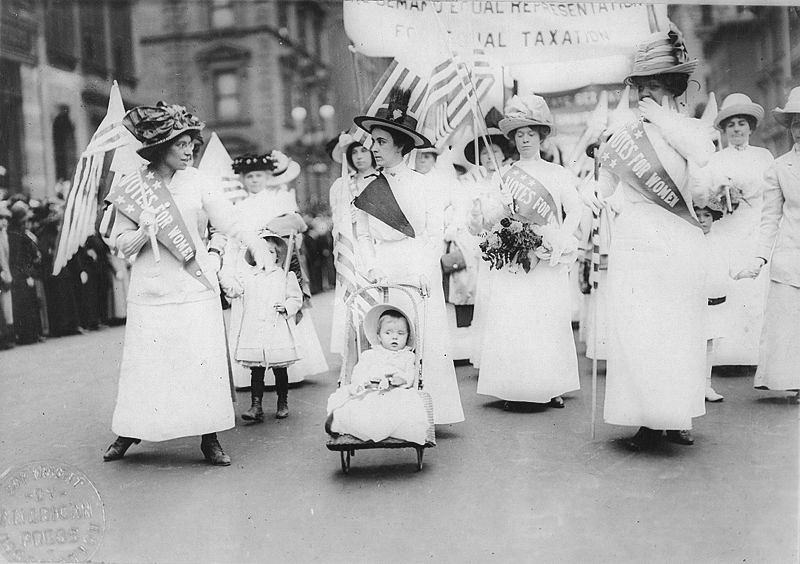|
Votes For Women (speech)
Votes for Women, a popular slogan in the campaign for women's suffrage in the United States, was also the title of a January 20, 1901 speech by American author and humorist Samuel Langhorne Clemens, better known as Mark Twain. In this speech Twain spoke out for women's full enfranchisement in the electoral process and predicted that within 25 years, they would have the right to vote. This proved to be true, the Women's Suffrage Amendment to the Constitution being passed by the United States Congress in 1919 and ratified by all the states in 1920. This speech was given at the Annual Meeting of the Hebrew Technical School for Girls in the Temple Emanuel. See also *Declaration of Sentiments *Ain't I a Woman? *Address to the Women of America On July 10, 1971, at the founding of the National Women's Political Caucus (NWPC) in Washington, D.C., NWPC co-founder Gloria Steinem delivered an Address to the Women of America. The speech furthered the ideas of the American Women's Movem ... [...More Info...] [...Related Items...] OR: [Wikipedia] [Google] [Baidu] |
Women's Suffrage In The United States
In the 1700's to early 1800's New Jersey did allow Women the right to vote before the passing of the Nineteenth Amendment to the United States Constitution, 19th Amendment, but in 1807 the state restricted the right to vote to "...tax-paying, white male citizens..." Women's suffrage, legal right to vote was established in the United States over the course of more than half a century, first in various U.S. states, states and localities, sometimes on a limited basis, and then nationally in 1920 with the passing of the Nineteenth Amendment to the United States Constitution, 19th Amendment. The demand for women's suffrage began to gather strength in the 1840s, emerging from the broader movement for women's rights. In 1848, the Seneca Falls Convention, the first women's rights convention, passed a resolution in favor of women's suffrage despite opposition from some of its organizers, who believed the idea was too extreme. By the time of the first National Women's Rights Convention ... [...More Info...] [...Related Items...] OR: [Wikipedia] [Google] [Baidu] |
Mark Twain
Samuel Langhorne Clemens (November 30, 1835 – April 21, 1910), known by his pen name Mark Twain, was an American writer, humorist, entrepreneur, publisher, and lecturer. He was praised as the "greatest humorist the United States has produced", and William Faulkner called him "the father of American literature". His novels include ''The Adventures of Tom Sawyer'' (1876) and its sequel, ''Adventures of Huckleberry Finn'' (1884), the latter of which has often been called the "Great American Novel". Twain also wrote ''A Connecticut Yankee in King Arthur's Court'' (1889) and ''Pudd'nhead Wilson'' (1894), and co-wrote The Gilded Age: A Tale of Today (1873) with Charles Dudley Warner. Twain was raised in Hannibal, Missouri, which later provided the setting for ''Tom Sawyer'' and ''Huckleberry Finn''. He served an apprenticeship with a printer and then worked as a typesetter, contributing articles to the newspaper of his older brother Orion Clemens. He later became a riverboat ... [...More Info...] [...Related Items...] OR: [Wikipedia] [Google] [Baidu] |
United States Congress
The United States Congress is the legislature of the federal government of the United States. It is bicameral, composed of a lower body, the House of Representatives, and an upper body, the Senate. It meets in the U.S. Capitol in Washington, D.C. Senators and representatives are chosen through direct election, though vacancies in the Senate may be filled by a governor's appointment. Congress has 535 voting members: 100 senators and 435 representatives. The U.S. vice president has a vote in the Senate only when senators are evenly divided. The House of Representatives has six non-voting members. The sitting of a Congress is for a two-year term, at present, beginning every other January. Elections are held every even-numbered year on Election Day. The members of the House of Representatives are elected for the two-year term of a Congress. The Reapportionment Act of 1929 establishes that there be 435 representatives and the Uniform Congressional Redistricting Act requires t ... [...More Info...] [...Related Items...] OR: [Wikipedia] [Google] [Baidu] |
Congregation Emanu-El Of New York
Congregation Emanu-El of New York is the first Reform Jewish congregation in New York City and, because of its size and prominence, has served as a flagship congregation in the Reform branch of Judaism since its founding in 1845. The congregation uses Temple Emanu-El of New York, one of the largest synagogues in the world. The congregation currently comprises approximately 2,000 families and has been led by Senior Rabbi Joshua M. Davidson since July 2013. The congregation is located at 1 East 65th Street on the Upper East Side of Manhattan. The Temple houses the Bernard Museum of Judaica, the congregation's Judaica collection of over 1,000 objects. History 1845–1926 The congregation was founded by 33 mainly German Jews who assembled for services in April 1845 in a rented hall near Grand and Clinton Streets in Manhattan's Lower East Side. The first services they held were highly traditional. The Temple (as it became known) moved several times as the congregation grew la ... [...More Info...] [...Related Items...] OR: [Wikipedia] [Google] [Baidu] |
Declaration Of Sentiments
The Declaration of Sentiments, also known as the Declaration of Rights and Sentiments, is a document signed in 1848 by 68 women and 32 men—100 out of some 300 attendees at the first women's rights convention to be organized by women. Held in Seneca Falls, New York, the convention is now known as the Seneca Falls Convention. The principal author of the Declaration was Elizabeth Cady Stanton, who modeled it upon the United States Declaration of Independence. She was a key organizer of the convention along with Lucretia Coffin Mott, and Martha Coffin Wright. According to the ''North Star,'' published by Frederick Douglass, whose attendance at the convention and support of the Declaration helped pass the resolutions put forward, the document was the "grand movement for attaining the civil, social, political, and religious rights of women." Background Early Activism and the Reform Movements In the early 1800s, women were largely relegated to domestic roles as mothers and homemak ... [...More Info...] [...Related Items...] OR: [Wikipedia] [Google] [Baidu] |
Ain't I A Woman?
"Ain't I a Woman?" is a speech, delivered extemporaneously, by Sojourner Truth (1797–1883), born into slavery in New York State. Some time after gaining her freedom in 1827, she became a well known anti-slavery speaker. Her speech was delivered at the Women's Convention in Akron, Ohio, in 1851, and did not originally have a title. The speech was briefly reported in two contemporary newspapers, and a transcript of the speech was published in the ''Anti-Slavery Bugle'' on June 21, 1851. It received wider publicity in 1863 during the American Civil War when Frances Dana Barker Gage published a different version, one which became known as ''Ain't I a Woman?'' because of its oft-repeated question. This later, better known and more widely available version was the one commonly referenced in popular culture and, until historian Nell Irvin Painter's 1996 biography of Truth, by historians as well. Sojourner Truth was born Isabella Baumfree in 1797 in New York State. Truth ran from h ... [...More Info...] [...Related Items...] OR: [Wikipedia] [Google] [Baidu] |
Address To The Women Of America
On July 10, 1971, at the founding of the National Women's Political Caucus (NWPC) in Washington, D.C., NWPC co-founder Gloria Steinem delivered an Address to the Women of America. The speech furthered the ideas of the American Women's Movement, and is considered by some to be one of the greatest speeches of the 20th century. Steinem refers to the idea of sex and race as being easy ways to organize people into inferior and superior beings due to the prominent characteristics and traits that are easy to point out. She also claims that the only roles in society seem to be for those who are chosen or for those who earned them. Not only did the speech address the issues of sexism and misogyny, but also those of racism and social class. The speech is mostly remembered for the following quotation: This is no simple reform. It really is a revolution. Sex and race, because they are easy, visible differences, have been the primary ways of organizing human beings into superior and infe ... [...More Info...] [...Related Items...] OR: [Wikipedia] [Google] [Baidu] |
History Of Women's Rights In The United States
History (derived ) is the systematic study and the documentation of the human activity. The time period of event before the invention of writing systems is considered prehistory. "History" is an umbrella term comprising past events as well as the memory, discovery, collection, organization, presentation, and interpretation of these events. Historians seek knowledge of the past using historical sources such as written documents, oral accounts, art and material artifacts, and ecological markers. History is not complete and still has debatable mysteries. History is also an academic discipline which uses narrative to describe, examine, question, and analyze past events, and investigate their patterns of cause and effect. Historians often debate which narrative best explains an event, as well as the significance of different causes and effects. Historians also debate the nature of history as an end in itself, as well as its usefulness to give perspective on the problems of the p ... [...More Info...] [...Related Items...] OR: [Wikipedia] [Google] [Baidu] |
Women's Suffrage In The United States
In the 1700's to early 1800's New Jersey did allow Women the right to vote before the passing of the Nineteenth Amendment to the United States Constitution, 19th Amendment, but in 1807 the state restricted the right to vote to "...tax-paying, white male citizens..." Women's suffrage, legal right to vote was established in the United States over the course of more than half a century, first in various U.S. states, states and localities, sometimes on a limited basis, and then nationally in 1920 with the passing of the Nineteenth Amendment to the United States Constitution, 19th Amendment. The demand for women's suffrage began to gather strength in the 1840s, emerging from the broader movement for women's rights. In 1848, the Seneca Falls Convention, the first women's rights convention, passed a resolution in favor of women's suffrage despite opposition from some of its organizers, who believed the idea was too extreme. By the time of the first National Women's Rights Convention ... [...More Info...] [...Related Items...] OR: [Wikipedia] [Google] [Baidu] |
Feminism In The United States
Feminism in the United States refers to the collection of movements and ideologies aimed at defining, establishing, and defending a state of equal political, economic, cultural, and social rights for women in the United States. Feminism has had a massive influence on American politics. Feminism in the United States is often divided chronologically into first-wave, second-wave, third-wave, and fourth-wave feminism. According to the 2017 Gender Gap Index measurement of countries by the World Economic Forum, the United States is ranked 49th on gender equality. First-wave feminism The first wave of feminism in the United States began with the Seneca Falls Convention, the first women's rights convention, held at the Wesleyan Chapel in Seneca Falls, New York, on July 19 and 20, 1848. The Seneca Falls Convention was inspired by the experiences of Elizabeth Cady Stanton and Lucretia Mott at the World Anti-Slavery Convention in London in 1840. The conference refused to seat Mot ... [...More Info...] [...Related Items...] OR: [Wikipedia] [Google] [Baidu] |
1901 In New York City
Nineteen or 19 may refer to: * 19 (number), the natural number following 18 and preceding 20 * one of the years 19 BC, AD 19, 1919, 2019 Films * ''19'' (film), a 2001 Japanese film * ''Nineteen'' (film), a 1987 science fiction film Music * 19 (band), a Japanese pop music duo Albums * ''19'' (Adele album), 2008 * ''19'', a 2003 album by Alsou * ''19'', a 2006 album by Evan Yo * ''19'', a 2018 album by MHD * ''19'', one half of the double album '' 63/19'' by Kool A.D. * ''Number Nineteen'', a 1971 album by American jazz pianist Mal Waldron * ''XIX'' (EP), a 2019 EP by 1the9 Songs * "19" (song), a 1985 song by British musician Paul Hardcastle. * "Nineteen", a song by Bad4Good from the 1992 album ''Refugee'' * "Nineteen", a song by Karma to Burn from the 2001 album ''Almost Heathen''. * "Nineteen" (song), a 2007 song by American singer Billy Ray Cyrus. * "Nineteen", a song by Tegan and Sara from the 2007 album '' The Con''. * "XIX" (song), a 2014 song by Slipknot. ... [...More Info...] [...Related Items...] OR: [Wikipedia] [Google] [Baidu] |




.jpg)

